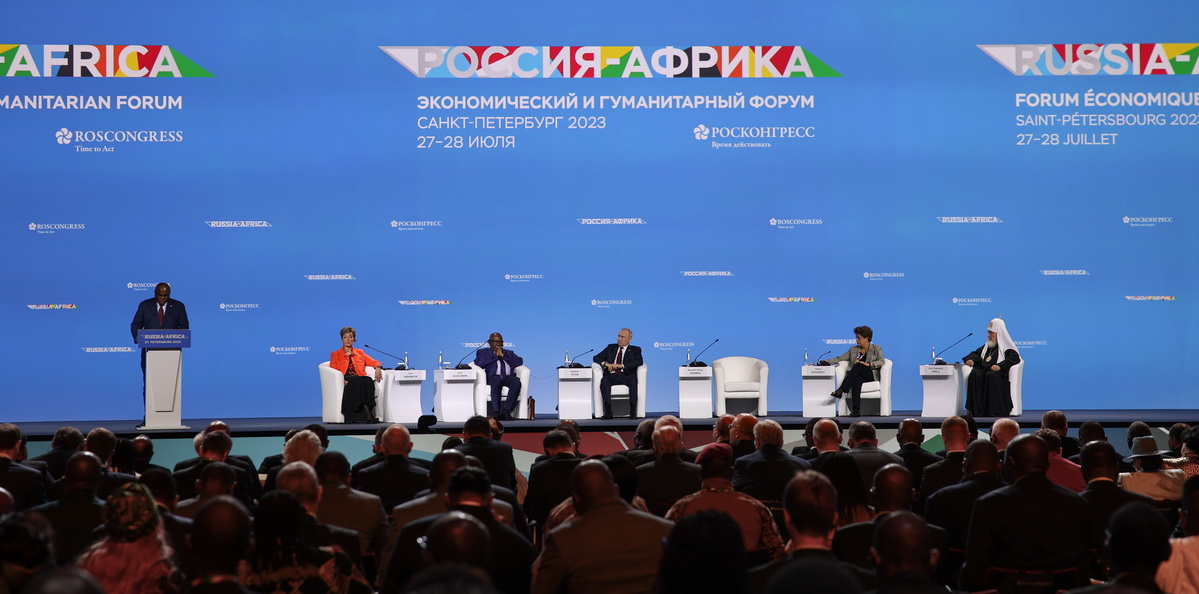
The share of African countries in Russia's foreign trade increased from 2.3% in 2022 to 3.7% in 2023, according to the Federal Customs Service. Last year, Russia-Africa trade reached 18 billion US dollars. That is not the most impressive figure but in view of the continuing development of the African region and the steady growth of the continent’s population, Russian export obtain interesting prospects.
Russian President Vladimir Putin is optimistic about the development of trade relations with the African states: “I am sure, together we are able to dramatically boost the trade”. When opening the plenary session of the second Russia–Africa Economic and Humanitarian Forum, he reminded: “In the first six months of 2023 alone, our export-import transactions with African countries increased by over one third. The structure of our trade looks good as well: machinery, equipment, chemicals and food account for over 50 percent of Russia’s exports to Africa.”
IAA PortNews offers a review of which Russian goods can be in demand in Africa and of how logistics related issues are being addressed.
Food sovereignty
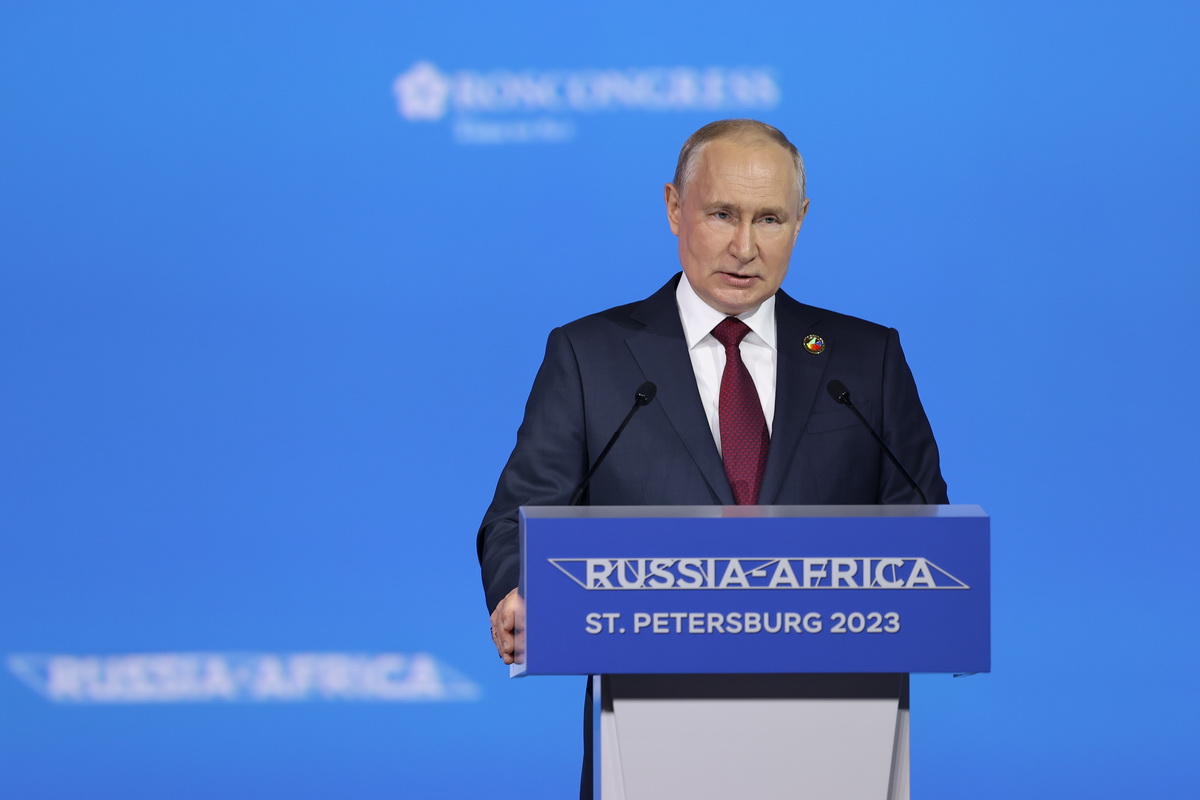
In 2022, Russia’s trade with African countries in agricultural products increased by 10 percent to $6.7 billion, and has already demonstrated record growth in January-June of this year by increasing by 60 percent. Russia exported 11.5 million tonnes of grain to Africa in 2022, and almost 10 million tonnes in the first six months of 2023.
“This is despite the illegal sanctions imposed on our exports, which seriously hinder the supply of Russian food, complicate transport logistics, insurance and bank payments, — reminded Vladimir Putin emphasizing that Russia would continue to give special attention to supplying wheat, barley, corn and other grain crops including as part of humanitarian aid provided under the UN World Food Programme.
As a confirmation of his words, the Russian President announced the free of charge supply of 25-50 thousand tonnes of grain to each of the following six countries: Burkina Faso, Zimbabwe, Mali, Somalia, Central African Republic and Eritrea.
“Practically all African countries import grain, which is explained by the agro-climatic conditions and by the fact that their own production is not enough to meet the growing demand. The agricultural season has resulted in total import of wheat, including flour, of 54 million tonnes. According to some forecasts, the volume will reach 58 million tonnes this season. Some African countries – Egypt, Algeria, Morocco, Nigeria – are among the world’s 10 largest grain importers. The demand of other countries is not that great, but no less significant. Africa accounts for 20% of the world grain trade, and given the growth in wealth and population, this volume will only grow. According to the UN, the population of the continent will reach 1.7 billion people by 2030 from 1.4 billion people as of 2022,” Ksenia Bolomatova, Deputy General Director of United Grain Company (OZK), told during the session “Identifying an Effective Strategy for Cooperation in Agribusiness”.
“Africa accounts for 20% of the world grain trade, and given the growth in wealth and population, this volume will only grow.”
One more commodity that Africa needs to ensure its own food sovereignty is fertilizer. According to Andrey Guryev, head of Russian Fertilizer Producers Association (RFPA), Russia currently accounts for about 10% of the total volume of fertilizers imported to Africa: out of 16 million tonnes, our country supplied 1.6 million tonnes. The RFPA head believes that Russian producers could occupy a more impressive market share, but the problems of the port and railway infrastructure of the continent need to be solved.
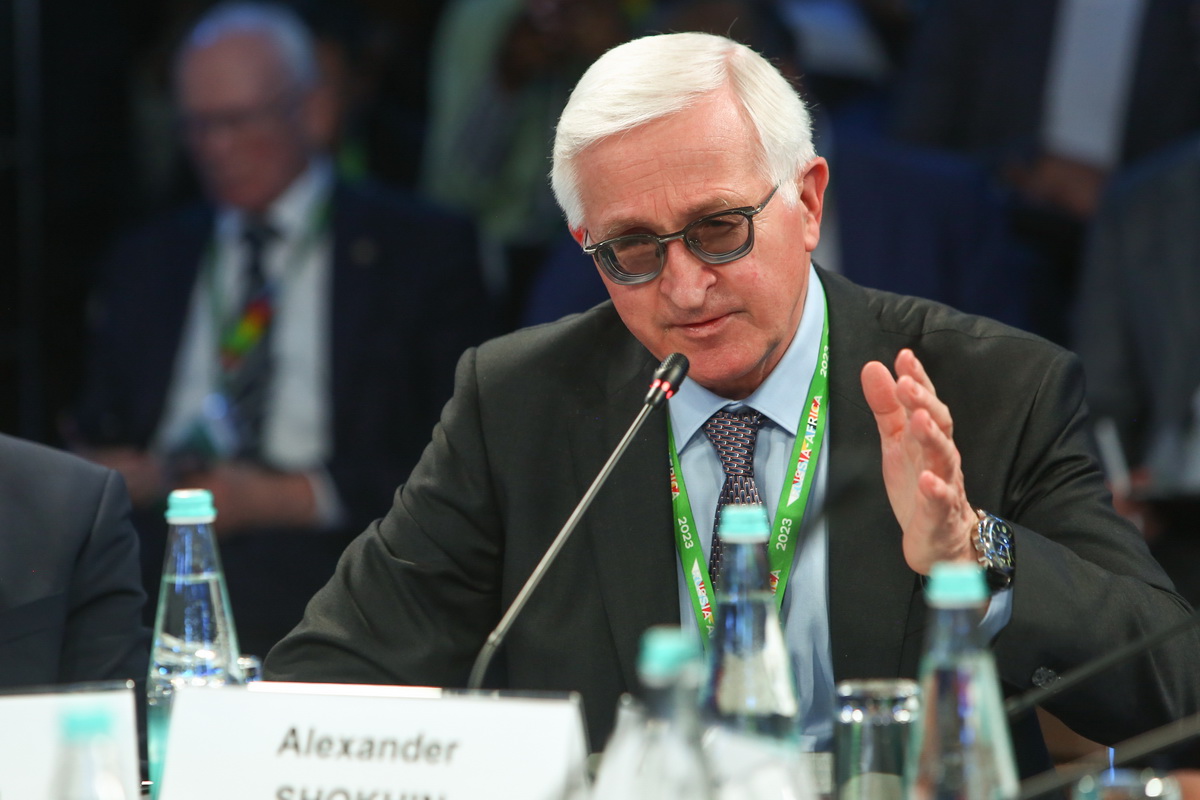
Although agricultural producers see and understand the opportunities obtained by entering the African market, many Russian companies still do not even think about this direction of export.
“Despite the great potential of trade, industrial and investment cooperation between Russia and the African region, we see a generally low level of Russian companies’ involvement. We conduct polls and they show that only 16% of respondents are involved in export activities to African countries and 12% are importing products. At the same time, a third of the respondents are not aware of any competitive advantages of their products on the African continent,” said Alexander Shokhin, President of Russian Union of Industrialists and Entrepreneurs.
And again, the North-South ITC
The basis of sustainable export cargo flow is reliable logistics. When it comes to Africa, this is seaborne transport. This raises the question: which route is to be used for cargo transportation?
“Russia is actively reorienting its transport and logistics flows to the Global South, including Africa, of course. The North-South transport corridor that we are building is designed to provide Russian products with access to the Persian Gulf and the Indian Ocean, with further connections via the shortest sea route to the African continent, among other regions. Naturally, this corridor can be used in reverse to deliver African goods to Russia,” said Vladimir Putin adding that the work on lunching regular freight lines is underway.
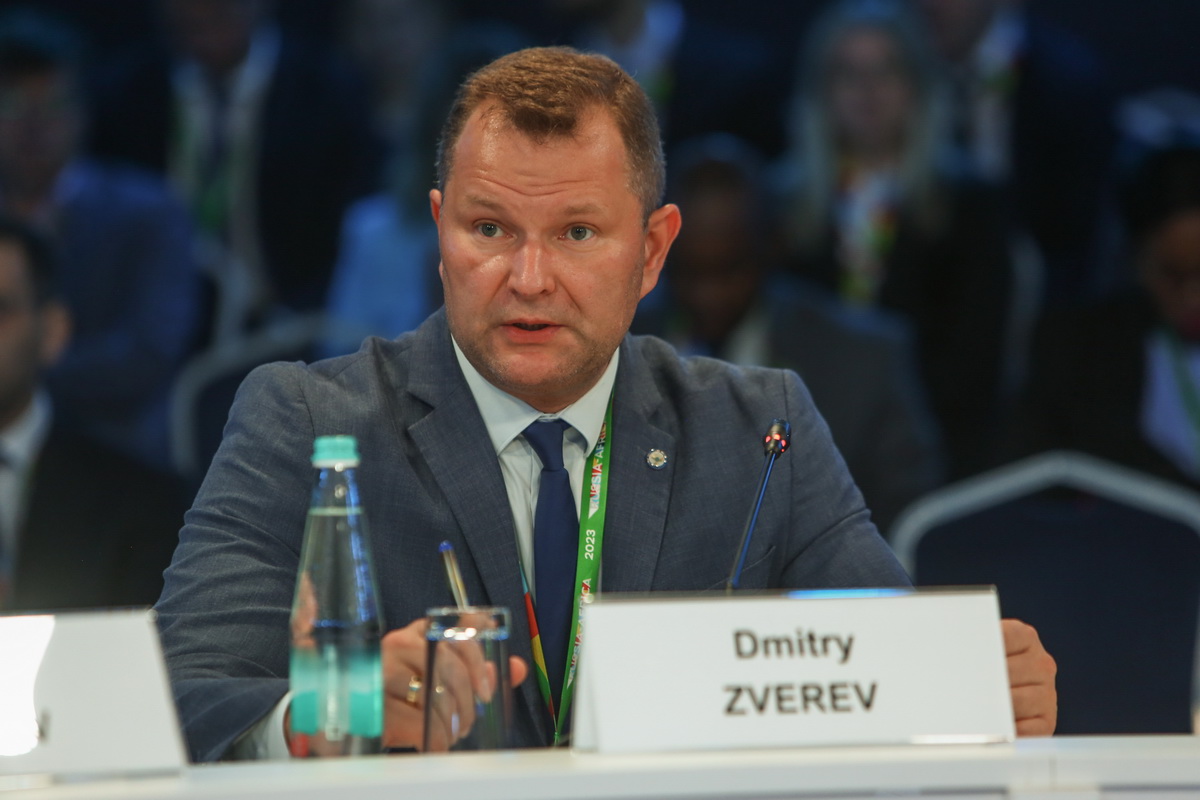
That is echoed by Russia’s Ministry of Transport: North-South ITC is now playing a new role opening opportunities not only for the transit of cargo along the route but also for the access of the interested countries to the new markets.
“Obviously, the countries of Africa can both receive and send cargo by this transport corridor, believes Dmitry Zverev, State Secretary — Deputy Minister of Transport of the Russian Federation. — I’m sure that our partners will be interested in this information since today’s social, political and integration processes in the territory of Africa act as a driver for a considerable transformation of the transport sector on the continent.”
Besides, a transport and logistics center of Russia can appear in one of the ports on the eastern shore of Africa.
“Russia sees prospects of Africa’s joining the North-South ITC – the key role here will be played by the points for consolidation and distribution of cargo, logistics hubs on the coast of Africa linked with each other and with the ports of Iran in the Persian Gulf,” — added Dmitry Zverev.
Our own facilities should be built
However, no transport/logistics centers have been built yet and the business representatives are facing infrastructure problems on the continent. That is due to the absence of port and railway facilities, special equipment and developed transport networks.
The issue of port and railway infrastructure is to be solved for boosting the trade with Africa
“They say there are about 90 ports in Africa, but the question is: how many of them are friendly towards Russia? Last year, having brought cargo to one of the countries in West Africa, we could not unload the ship. The infrastructure is owned by the British, Americans, Europeans, or, in the best case, to the Chinese and Arabs, but they raise prices 5-6 times compared to what it costs here in Russia,” said Ivan Demchenko, BoD Chairman of Novostal-M, the company present in the African market since 2016.
In this regard, the company has begun to develop its own infrastructure, he says. A programme has been developed to create storage facilities, a transport company has been established to transport products in Senegal on its own.
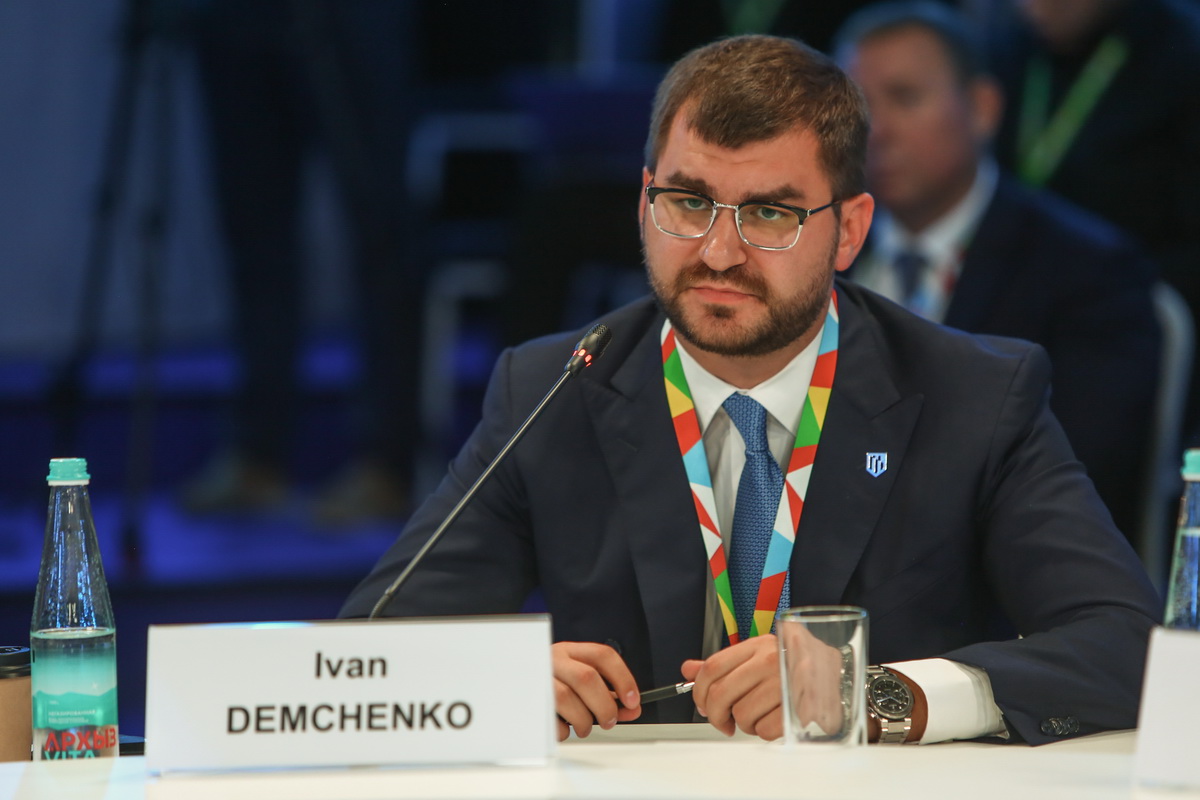
“VEB is now getting actively involved in this work. The creation of a port base for sea transshipment of goods in Senegal is under consideration. It is impossible to create such an infrastructure without state support,” he added.
One more question to be answered is what is to be brought from Africa to Russia? FESCO Transportation Group which earlier launched a regular line for container transportation to the Republic of South Africa (RSA), has come to an agreement with the Institute of Africa of the Russian Academy of Sciences on the study of a cargo base in Africa to determine the most promising logistics directions and routes. At the first phase, the parties will focus on the countries of North Africa.
“Today, our own fleet for deliveries to Africa is more expensive than chartering from Chinese companies because we don't have any planned load for return voyages. For the Chinese, Africa is a strategic region, they have a clear understanding that they are transporting steel, food, plumbing to Africa, and loading dry cargo ships with alumina and other products for the return voyages. To make the transportation cheaper, we either need to ensure 100% return loading, or rely on government assistance,” Ivan Demchenko believes.
|
Africa is certainly a promising and interesting market for Russia, especially in the current conditions, when traditional trade ties have been disrupted. But the number of unresolved problems is so great that it requires a comprehensive and systematic approach of the government. It is difficult for private companies to make their way to this market on their own. Therefore, a ready-made plan and schemes for entering new African partners are required. That is quite feasible in the mid-term if the declared Russian industrial zones and transport-logistics hubs appear. |
Photos contributed by Roscongress Foundation
More industry-related content is available on our social media pages: YouTube, Telegram, Yandex Zen



